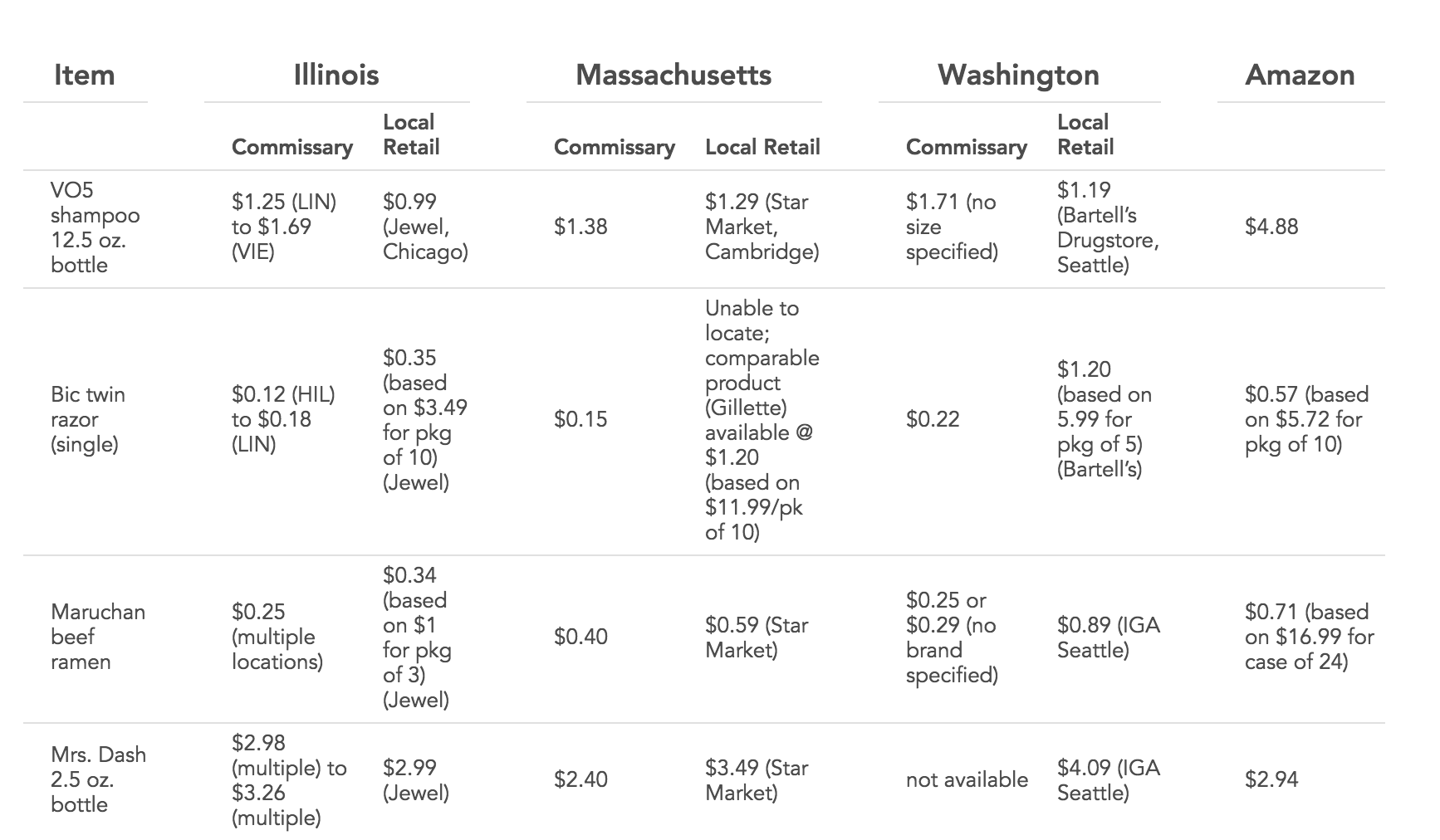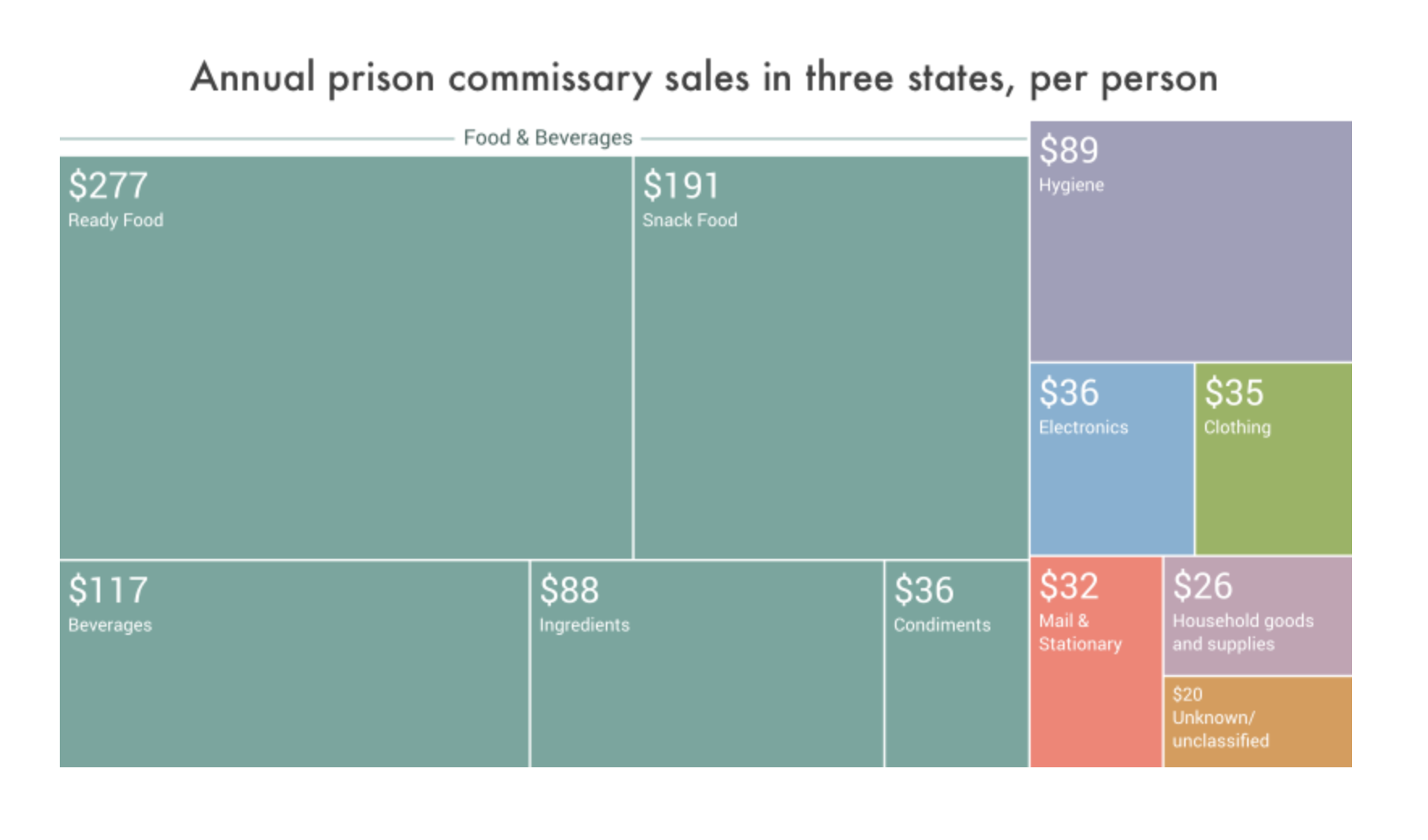Incarceration is expensive, and prisons and jails often attempt to shift the costs to inmates and their families, charging for phone calls, emails, and even basic necessities from the commissary like food and toiletries. Previous estimates pegged commissary sales in prisons and jails as a $1.6 billion industry, but a new report from the Prison Policy Initiative suggests that the number may be even higher.
For the report, attorney Stephen Raher parsed commissary sales data for three states—Massachusetts, Washington, and Illinois—to find out how much inmates were spending on things like snacks, hygiene products, stationary, clothing, and electronics. Raher found that, across all three states, inmates spent an average of $947 on commissary goods annually. Meanwhile, yearly prison wages in these states range from $180 to $660, according to Raher. Many inmates rely on family members to make up the difference, which means that “families are effectively forced to subsidize the prison system,” Raher writes. Of course, not every inmate has family members capable or willing to transfer money into their commissary accounts, which means some inmates can’t afford to make any purchases beyond their prison wages.

(Source: The Company Store: A Deeper Look at Prison Commissaries)
In general, the report found that most goods were priced at or below costs in the real world, but that doesn’t mean incarcerated people are getting fair deals. In Illinois, for example, inmates spend an average of $80 on a year’s worth of toiletries and hygiene products, accounting for half their annual wages. Inmates spent the most on food, supplementing notoriously small, nutrient-poor prison meals with packaged snacks, meals, and beverages. According to Raher, the data clearly shows that most commissary purchases are not for luxuries, but basic necessities.

“If your only bathing option is a shared shower area, aren’t shower sandals a necessity? Is using more than one roll of toilet paper a week really a luxury (especially during periods of intestinal distress)?” Raher asks. “Or what if you have a chronic medical condition that requires ongoing use of over-the-counter remedies (e.g., antacid tablets, vitamins, hemorrhoid ointment, antihistamine, or eye drops)? All of these items are typically only available in the commissary, and only for those who can afford to pay.”



